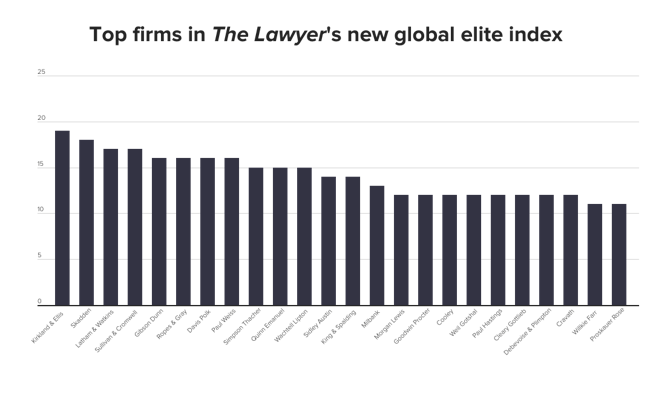
The boutique is back, ready to exploit client pressure to get value for money on IP, IT and media work. Tighter profit margins in the technology and media industries have created opportunities for smaller, cheaper and more flexible firms to take on the more expensive City players.
Three new niche firms have opened in the past three months alone and four boutiques have launched in total so far this year, covering everything from sports to media, entertainment, IT, IP and even fashion matters.
These include Taylor Macmillan, IPS Law and iLaw, which employ only eight lawyers between them (see box).
Laurence Guedes, general counsel at IT company LogicaCMG, says: “The business we’re in puts us under great commercial pressure. Our customers expect us to offer more for less and we have to pass that on to the services we use ourselves.”
The boutique lawyers are well aware of this pressure and see it as an opportunity.
When it launched in August, iLaw estimated that it could undercut the market price for partner level advice by 50 per cent, working out at roughly £150 an hour.
The new boutiques generally have around three partners who do most, if not all, of the work. They can offer clients discounted rates compared with those of IP and media departments in the bigger firms because of low overhead costs. Boutiques often lead the way when it comes to flexible fee systems, such as conditional fee arrangements.
This plays on the pressure experienced by IP departments to get value for money and justify their existences.
Georgy Evans, head of trademarks at Shell, says: “We’re always looking for value for money. There’s that worry that, if we don’t, one day we’ll be outsourced like IT departments.”
Evans has worked with trademark protection specialists Rouse Legal and IP boutique Redd Solicitors.
Guedes at LogicaCMG is another client pleased with the level of service at boutiques. “I’m very positive about my experiences with them,” he says. “They’re very cost competitive.”
The company traditionally uses City firms Freshfields Bruckhaus Deringer and Herbert Smith for large projects, but has also instructed established IT boutique Kemp Little for certain matters.
“On a significant UK project there are no worries about size,” adds Guedes. “Competitive boutiques can rattle the cages of the City firms.”
But it is not all about price. The media industry has a particular way of working and clients require specialist firms and lawyers who understand their businesses.
A good example is in the US, where the Hollywood establishment pioneered the use of small firms for surplus day-to-day work.
Charles Moore, film partner at media boutique Wiggin, says: “With the huge studios in the US you’d think they’d use huge firms, but they don’t. They go to specific people in small firms for their overflow work.”
For example, Hollywood powerhouses Paramount and Focus Features use Los Angeles boutiques Wyman Isaacs and Barkin Smith respectively.
The studios go to the boutiques because they are familiar with the idiosyncrasies of the film business.
As Moore puts it: “You don’t want someone who’s cheap but no good. The key is specialisation.”
Media lawyers like working in boutiques, which has contributed greatly to their growth.
Julian Turton, who opened media boutique Swan Turton with colleague Charles Swan last year, says: “Boutiques tend to have a more easygoing culture than larger firms’, which can make them more attractive to media lawyers.”
It seems media lawyers, unlike most corporate and finance lawyers, are prepared to take a cut in pay to work in their chosen field in a way that suits them.
Turton adds: “Media lawyers tend to have emotional attachments to those areas they go into, such as theatre, music or film. They’re often as interested in that aspect of it as they are in the law.”
The recent rush to open boutiques has as much to do with finding a good quality of life as it does with filling a gap in the market for legal advice. But the real beneficiaries from the return of the boutique will be the clients.
Boutique launches in 2006
Taylor Macmillan
Opening for business just last week (18 September), Taylor Macmillan brings together The Sun‘s lawyer Daniel Taylor, Carter-Ruck senior associate Kate Macmillan and Mishcon de Reya consultant Simon Gallant.
iLaw
Three-partner IP/IT boutique iLaw opened in August with IT partner Bobby Gill and IP litigation senior lawyer Mark Culbert from Osbourne Clarke, and IP partner Justin Ellis from DMH Stallard.
IPS Law
Hill Dickinson partner Chris Farnell left with assistant Paul Fletcher to set up his sports boutique IPS Law in July this year and advised Chelsea FC on the purchases of players Michael Ballack and Andriy Schevchenko.
Onside Law
Sports and fashion boutique Onside Law is a three-partner outfit with lawyers from IMG and Clifford Chance. The partners comprise Jamie Singer, Oliver Hunt and Simon Thorp. The firm rose to prominence after acting for the French Tennis Federation in its High Court IP dispute with Adidas.






























